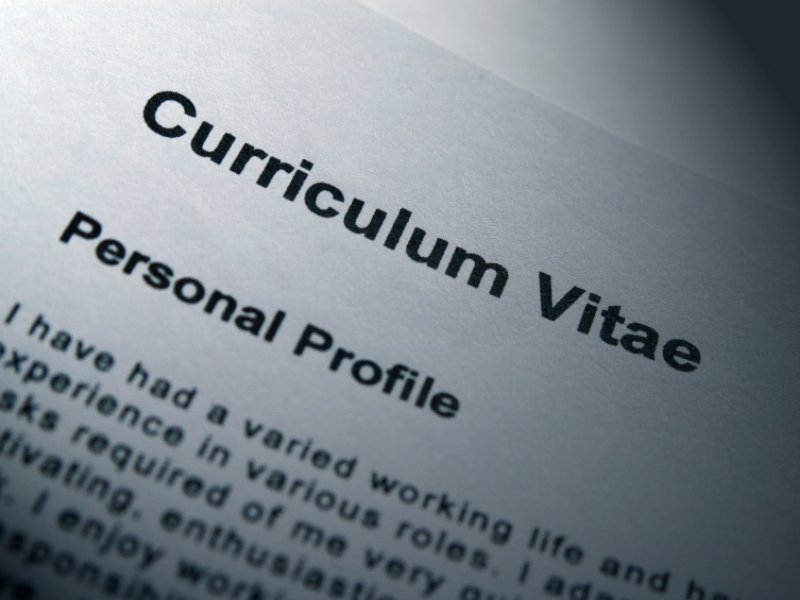A Curriculum Vitae or CV is your marketing tool, allowing you to promote yourself to prospective employers. Imagine your CV as a brochure that will highlight the benefits of a particular service. The service being your time and skills!
When writing a CV, try to look at it from the employer's point of view. Would you stand out against other candidates and would the employer want to talk to you to discuss a possible position. These questions need to be asked when writing your CV.
Your CV is an essential job searching tool and just the first step in the job search and will be your first contact with any potential employer and will, all being well, open the door. If you are invited for an interview you would then be in a position to explain and expand on what is on your CV.

Why Write a CV?
Apart form the above mentioned reasons, there are many reasons why you would write a CV, as shown below:
Changing job within the same employment field.
You like what you do, but you want to do it for someone else or somewhere else. The key here is to ensure you include highlights and achievements in your CV. Achievements can show the employer that you are able to meet objectives, something all employers are looking for.
Changing job and employment field.
Usually a career overhaul or change of direction. When writing your CV try to include any related highlights of experience or qualifications in this new area. You would also need a reason in your CV outlining why you want to make a career change.
Summary of your life achievements.
Having a prepared CV is always prudent as you never know when a good opportunity will arise. Ensure that it is regularly updated, adding any relevant education and training, changes of contact and additional duties and achievement. This way, when a job opportunity arises, you will be able to react quickly, as your CV will already be written and the issue of writing and remembering will not be an issue, just some simple editing to highlight relevant skills and experience akin to the role in question.
Applying for a specific job.
Ensure that you include as many of your skills that the job requires in your CV. If you are lacking particular qualifications that the job requires, try to make up for it by showing your experience. Ensure you read the advertisement carefully and follow all instructions.
Writing your CV
A CV is a summary of you, your life history, your job history, your achievements and your skills. As a rule of thumb it should be split into the following sections:
Heading
In the CV heading you can write your general information. Minimise complications and delays by ensuring your contact details are readily available:
- Full Name
- Local address
- E-mail address
- Phone number(s) and dialling codes
Personal Profile (Skills Summary)
The profile or skills summary section should be a snap shot or synopsis of your key skills, designed to catch the eye of the employer, utilising keywords only and not lengthy descriptions of your skills.
Objective (can be adjoined into the Personal Profile)
The CV Objective, sometimes combined as a paragraph concluding your Personal Profile states "What is my next step in my career?" This should be a short, concise statement that informs the employer what kind of position you are looking for and at what level you are aiming.
(If you are job hunting it is a good idea to have a number of CV's with varying profiles and/or objectives. For example, you can have a CV for Projects Engineer and the other for a Maintenance Supervisor, each highlighting particularly relevant skills, achievements and knowledge.
Education and Qualifications
List all your qualifications in this section. Include all of your education including certifications from non-academic institutions, especially those that are related to this job vacancy. Include honours, awards and accomplishments in a bulleted fashion.
Also include any languages skills, I.T Skills, software package proficiency, and other skills that are not in the rest of your CV i.e. First Aid
Work Experience / Job History
This section of your CV is to include all your work experience. Try to include unpaid work, voluntary, summer jobs, internships or experience outside work if they are relevant to the position to which you are applying.
Each job detail should include this basic information:
- Dates of employment
- Name of the Organisation
- Position held / Job Title
- Duties and Responsibilities
Activities and Interests
Any activities that you do in your free time, can be related to your job. These experiences can show initiative, commitment, team participation, professional association, enthusiasm, leadership, competitiveness and motivation.
Leave out any activities related to politics, religion or controversial topics which could alienate the reader.
References Available Upon Request
Try to include references that you are willing to provide or if not include the above statement. Ask people if they are willing to serve as references before you give their names to a potential employer.

